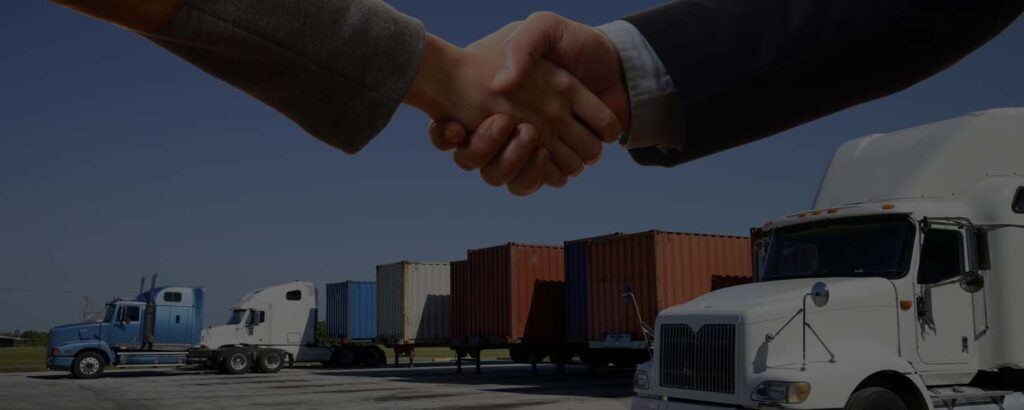In today’s digital age, international expansion is no longer a distant dream reserved for corporate giants. Small and medium-sized businesses (SMBs) across Canada are breaking borders and reaching new markets, thanks in large part to advancements in logistics and supply chain technologies.
Yet, for every success story, there are countless businesses struggling with customs, warehousing, transportation, and last-mile delivery challenges. The difference often lies in one key factor: smart logistics.
In this comprehensive guide, we’ll explore how Canadian companies—whether in e-commerce, manufacturing, retail, or distribution—can expand globally with greater ease, efficiency, and profitability by leveraging intelligent logistics strategies.
Why Global Expansion Is the Next Big Move for Canadian Businesses
Canada’s domestic market, while stable, is relatively small. To remain competitive and fuel long-term growth, businesses are increasingly eyeing international markets.
Whether it’s entering the U.S., tapping into Europe, or reaching emerging markets in Asia and Africa, global expansion offers a wealth of opportunities:
-
Access to larger customer bases
-
Diversified revenue streams
-
Enhanced brand recognition
-
Economies of scale in production and distribution
However, the journey to international markets isn’t simple. It requires careful planning, regulatory understanding, and, most importantly, a logistics infrastructure that can scale.
What Is “Smart Logistics”?
Smart logistics refers to the use of advanced technologies, strategic planning, and data-driven systems to optimize the movement of goods across supply chains. It includes:
-
AI-powered inventory management
-
Real-time shipment tracking
-
Cross-border compliance automation
-
Integrated warehousing and transportation
-
Data analytics for demand forecasting
It’s not just about moving products from point A to point B—smart logistics focuses on doing so in the most efficient, transparent, and cost-effective way possible.
Step-by-Step: How Smart Logistics Enables International Expansion
Let’s break down the key ways Canadian businesses can use logistics to successfully scale internationally.
1. Streamlined Cross-Border Shipping
Challenge: International shipping involves dealing with customs clearance, tariffs, regulations, and documentation that vary by country.
Smart Solution:
Partnering with an experienced logistics provider or freight broker can automate cross-border processes, ensure accurate paperwork, and reduce delays at ports of entry. Smart systems also offer HS code validation, real-time tracking, and automated tax calculation, minimizing risks and surprises.
Canadian Tip: Consider services like Right Logistics Inc., which specialize in cross-border freight and compliance for Canadian exporters.
2. Optimized Warehousing and Fulfillment
Challenge: International customers expect fast, affordable shipping—but shipping everything from Canada can lead to high costs and long delivery times.
Smart Solution:
Use distributed warehousing models and third-party logistics (3PL) providers to store inventory closer to your target markets. For example, having micro-fulfillment centers in the U.S. or Europe allows for same-day or next-day delivery, a game-changer in customer satisfaction.
Warehouses with integrated software also help track inventory levels, manage SKUs, and prevent stockouts—essential for multi-country operations.
3. Improved Supply Chain Visibility
Challenge: Once your products leave Canadian soil, tracking them can become difficult—especially with multiple carriers and customs agencies involved.
Smart Solution:
Modern logistics platforms offer real-time tracking, with updates on every step of the journey—from departure to customs, warehousing, and last-mile delivery. Cloud-based dashboards give Canadian business owners total visibility, improving decision-making and customer communication.
4. Cost Reduction Through Automation
Challenge: International shipping is expensive. Labor, packaging, warehousing, fuel surcharges, and return logistics add up fast.
Smart Solution:
Automated logistics platforms optimize shipping routes, reduce packaging waste, and select the most cost-effective carriers based on destination, weight, and timing. AI-powered analytics also detect cost anomalies and suggest better pricing strategies.
Bonus: Automation doesn’t just save money—it reduces errors, improves accuracy, and boosts overall supply chain health.
5. Navigating Global Returns Efficiently
Challenge: Returns are a natural part of global e-commerce, but managing international reverse logistics is complex and expensive.
Smart Solution:
By partnering with 3PLs or logistics firms with international returns infrastructure, Canadian businesses can offer local return options in target countries. Smart platforms enable automated return labels, refundable tracking, and localized restocking, improving customer trust and retention.
6. Regulatory Compliance and Trade Agreements
Challenge: International trade laws, certifications, and taxes vary by region. Non-compliance can lead to penalties or confiscated goods.
Smart Solution:
Use logistics providers and software with built-in compliance tools that help classify goods, calculate duties, and adhere to import/export laws. For Canadian exporters, this includes leveraging trade agreements like:
-
CUSMA/USMCA (Canada–U.S.–Mexico)
-
CETA (Canada–EU Free Trade Agreement)
-
CPTPP (Comprehensive and Progressive Agreement for Trans-Pacific Partnership)
Smart logistics ensures you benefit from duty reductions and faster processing at customs.
7. Localized Delivery Options
Challenge: International buyers expect flexible delivery—from doorstep drop-offs to in-store pickups.
Smart Solution:
Smart logistics offers multi-modal delivery options tailored to the local market—whether via postal services, courier networks, or regional delivery partners. Canadian businesses that integrate with local delivery networks outperform global competitors who only ship internationally.
8. Scalability and Future-Proofing
Challenge: As demand grows, outdated logistics systems can become bottlenecks.
Smart Solution:
Smart logistics platforms are scalable, meaning they can grow with your business. Whether you’re selling 100 or 10,000 units a month, cloud-based systems, dynamic routing, and AI forecasting can handle changing volumes seamlessly.
By choosing the right logistics partner early, Canadian businesses can scale internationally without losing efficiency or profitability.
Logistics Technologies Powering Global Trade
To truly go global, Canadian businesses should consider adopting some of the following logistics tech tools:
| Technology | Function | Benefit |
|---|---|---|
| WMS (Warehouse Management System) | Tracks inventory, manages orders | Reduces human error, improves fulfillment speed |
| TMS (Transportation Management System) | Optimizes shipping routes and carriers | Cuts costs and increases delivery reliability |
| EDI (Electronic Data Interchange) | Automates documents exchange with customs and partners | Speeds up cross-border processing |
| IoT Devices | Track shipment conditions (e.g., temperature, humidity) | Ideal for food, pharma, or fragile items |
| Blockchain | Ensures transparent supply chain records | Reduces fraud and increases traceability |
Canadian Success Stories: Logistics Done Right
Shopify Sellers Going Global
Thousands of Canadian Shopify store owners have expanded into the U.S., UK, and Australia by using logistics apps and 3PL services that integrate directly with their platforms. Fulfillment networks like Shopify Fulfillment Network (SFN) and Deliverr reduce shipping times and improve reliability.
Alberta-Based Manufacturers
Alberta-based machinery manufacturers have scaled exports to the U.S. Midwest by using cross-dock logistics in Montana, reducing border delays and improving delivery consistency.
Quebec Retailers in the EU
Retailers in Quebec have used CETA to reduce customs fees and export costs, delivering directly to European customers using localized distribution centers in France and Germany.
These real-world examples show that smart logistics isn’t optional—it’s essential.
Final Tips for Canadian Businesses Expanding Abroad
-
Start Small, Scale Smart: Pilot your logistics system with one country before expanding further.
-
Use the Right Partners: Vet logistics companies with international expertise, customs knowledge, and real-time technology.
-
Don’t Ignore the Returns Process: Plan your reverse logistics early to avoid reputation damage.
-
Stay Customer-Focused: Prioritize fast, reliable, and affordable delivery—even overseas.
-
Invest in Tech: The right logistics software will pay dividends in cost savings and growth.
How Right Logistics Inc. Can Help
If you’re a Canadian business looking to expand globally, Right Logistics Inc. offers a full suite of smart logistics services designed to help you break into new markets with confidence.
From cross-border shipping and customs clearance to warehousing and last-mile delivery, we build tailored logistics strategies that eliminate friction and maximize profit.
Let’s build a smarter route to your global success.
Contact us for a free consultation today.




